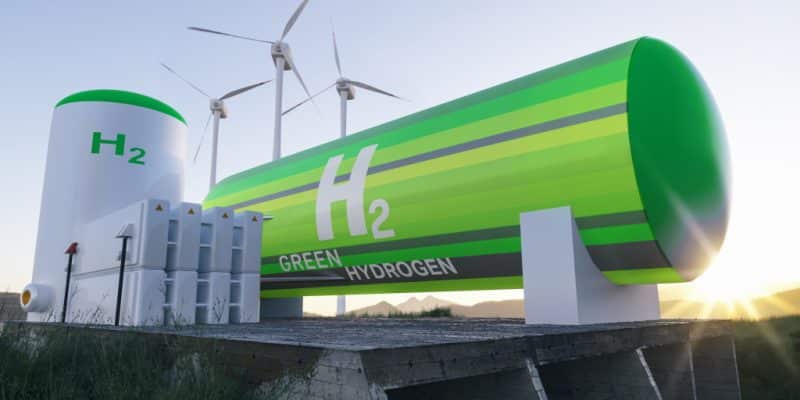The Australian energy company CWP Global has signed an agreement with the Djibouti authorities for a green hydrogen project. The company wants to develop 10 GW of electrolysis capacity from renewable energy.
Djibouti joins the African countries that are embarking on the development of the green hydrogen industry. This is thanks to CWP Global. The Newcastle, Australia-based company has just signed an agreement with the Djibouti authorities to develop a green hydrogen project over the next few years. The agreement initialled on 5 December 2022 is the result of negotiations between the Australian group and the Djiboutian authorities, led by the President of the Republic Ismaïl Omar Guelleh.
Le Ministre de l’Energie, chargé des Ressources Naturelles, S.E.M Yonis Ali Guedi et le Vice-président Business Development du Groupe CWP Global pour la région MENAT (Moyen-Orient/Afrique du Nord/Turquie), M. Youssef Takki Chebihi ont procédé ce Lundi 05 Décembre 2022, pic.twitter.com/MYaEC5bghS
— Ministère de l'Energie chargé des RN (@djib_mern) December 5, 2022
The company wants to develop 10 GW of electrolysis capacity based on renewable energy. CWP Global wants to integrate this project into Djibouti’s Vision 2035, “which prioritises closer cooperation with regional neighbours, notably Ethiopia, where there is great potential for collaboration on green energy”.
Djibouti or CWP’s gateway to the Horn of Africa
“As we saw at COP27, the African continent is rapidly gaining momentum for large-scale renewable energy and green fuels. At CWP, we are very proud to be playing a major role in this new phase of sustainable, zero-emissions economic growth in Africa,” said Alex Hewitt, CEO of CWP Global, following the signing of the agreement with the Djibouti government.
Read also- MAURITANIA: Australian CWP to invest $40bn in green hydrogen by 2030
Like most countries in the Horn of Africa, Djibouti has enormous renewable energy potential, including geothermal, solar and wind. In addition, the country of just over one million people is located on the Bab el-Mandeb Strait, which links the Red Sea to the Gulf of Aden in the Indian Ocean. This geographical position is favourable for the export of green hydrogen to the international market.
In addition to exporting, CWP plans to inject some of the electricity produced into Djibouti’s national grid. This will support the government’s ambition to produce 100% of its electricity from renewable sources by 2030. Currently, the country has an installed capacity of 126 MW, obtained from thermal power plants according to Power Africa. Djibouti will begin diversifying its electricity mix with the commissioning of the Ghoubet wind farm (60 MW) that the German energy company Siemens Gamesa is currently building along the border between the regions of Arta and Tadjourah.
Jean Marie Takouleu







